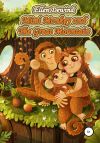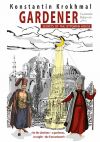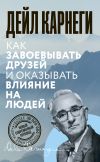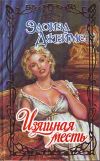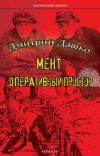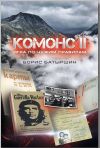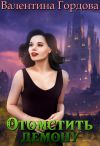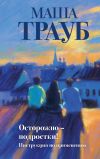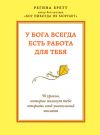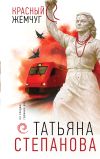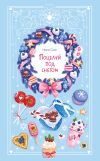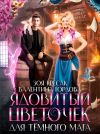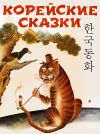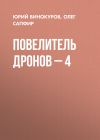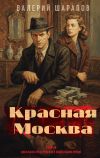Текст книги "Khon Yush. Way From the Ob"

Автор книги: Зинаида Лонгортова
Жанр: Историческая литература, Современная проза
Возрастные ограничения: +16
сообщить о неприемлемом содержимом
Текущая страница: 4 (всего у книги 14 страниц) [доступный отрывок для чтения: 4 страниц]
Summer 1941
In the month of vonzi, when the ringing snow streams are already tired of running, hurrying to the still ice-covered Ob, the river finally breathed. Shore ice became wider, and the river gained strength. With a powerful back it lifted a heavy cover of ice above. Once in the morning, with a deafening crack, the ice moved near the village itself. From the headwaters of the Ob, huge ice floes swayed on the water, tossing and turning, crawling onto each other, and crushed everything that comes in the way. The ice drift began.
The river started. Piled on top of each other, heavy dirty ice swept away islands and trees along the way. The high sandy shores collapsed, and the mighty cedars and thin birches, exposing their roots, rolled upside down to a stormy river – just like people. The weak died, the strong survived in this whirl. The ice, plunging into the dark deep waters, sharply emerged from the seething mess, rushing to the Gulf of Ob.
Having been exposed from the frozen cover, the high-water river As happily breathed in deeply, tossing up the foam and shards of the last ice floes glistening in the sun. Muddy water animatedly played with spring sunshine after a long winter hibernation and extended to the sandy shores. The men rushed to fishing, putting nets on the sors that had been freed from ice.
By the end of June, Anshem iki went afloat when she heard that upstream white fish had approached. Someone in a neighboring village has already caught a big nelma. Anshem iki arrived from fishing with his neighbor. Each of them was carrying a large fish in his fingers by the gills. The lucky fisherman gave his wife a catch and said:
«Two boats are coming from above. The authorities, apparently, will distribute sands among the fishermen.»
«Granddaughter,» said Levne to Tatya, «take Khatan evie and go to your neighbors, invite them to eat fresh fish. Tell them your grandfather brought the narkhul (frozen fish).»
The girls ran to invite the neighbors. The mistress of the house sat flaying a catch.
Soon the boat landed. The guests who arrived from the area explained something to people. A commotion began in the village. Throwing her fish on the grass, the woman, frightened, ran into the house. She cautiously toucher the leg of her husband, afraid to frighten him in a dream as he was having a short sleep after fishing:
«Did you hear? People are shouting about some kind of war. Go and find out what happened.»
Anshem iki, without asking anything, quickly jumped to his feet and ran to find out the news…
Authorities arrived from the district center and reported on the treacherous attack by Nazi Germany on the Soviet Union. Shifting from one foot to another, not understanding anything, people stood at the village council and bowed their heads, not knowing what to do. Everything was quiet and smooth. Even the Ob, freed after the winter cover, was calm and freely raised its broad chest, playing placidly with the sun rays which glittered on its light scallops. The chairman, who could not understand anything either, asked all the young men who were ready to defend their homeland to come for a call-up paper:
«Lads! Our homeland is in danger! Enemies have not yet reached us, but they can destroy our nests. Is there anyone who wants to protect his native land? Go to the village council for your call-up papers. Tomorrow or the day after tomorrow, there will be a ship from the Gulf of Ob, which will take all the recruits and go all the way to Omsk.»
Children cried restlessly in women's arms, and dogs barked uneasily. In anticipation of terrible changes, adults anxiously peered into the faces of the authorities who arrived from the district center. Their hearts tightened with terrible news. What kind of war? Who wants to destroy them? Who are those Germans, who are those fascists?
A few days later a black steamer arrived with a barge. There were conscripts in malica, in parks, in sweatshirts: Russians, Zyryans, Khanty, Selkups, Nenets…
Pregnant Khashkurne stood next to her husband, who gently hugged and kissed his little son. The child already started walking comically, breaking away from his father's strong hands, asking to go down to test the strength of his stronger legs. Hugging his son, he looked at his fragile wife, who, covering her face with old scarves, looked into her husband through an opening.
«Son,» said Kushchta iki to the tiny child, «you are now the head of the family. Take care of your mother!»
His soul tore apart when he looked at his fragile wife: «I leave everything on your shoulders, my soulmate, both the house and the deer – the whole household. You have a boat, nets, and hunting equipment. I don't know how the war will decide my fate, maybe I'll be back home soon?» When the conscripts were ordered to move to the barge, Khashkurne grabbed her husband, hiding her face in a handkerchief, and cried. Women looked reproachfully in her direction.
«Don't you cry. Your husband does not leave forever, he'll return!»
Having pressed her son to the rounded belly, the young mother calmed down under a scarf with long tassels that covered her beautiful face. The daughter of the well-known shaman Lylan Luhpi shepan iki was already expecting her second child.
Long time ago they captured her from a village fifty kilometers higher along the Ob. When her father, the shaman who raised dying people from their deathbeds, was invited to cure a sick, he often took his silent and obedient Khashkurne with him. She helped him build a holy fire, brought water. Maybe her father was preparing her for the future of a shaman, but the young guy Kushchta, who grew up without a mother, noticed the fair-haired, thin girl with small freckles. Even the old people looked at the beautiful face of the growing girl when it was not covered with a scarf.
That year, when Kushchta turned into a mature thin guy, the girl also came to the curing with her father. The shaman was supposed to treat a sick old man. In a strange village, she tried to cover her face with a scarf, and she did not look at people at all.
In a house darkened black, where the flames of a bonfire danced in a red transparent silk shawl, Lylan Luhpi shepan iki treated a man who was seriously ill. The young man also came together with women, children and the elderls. Each of them dreamed of looking at the beauty of the shaman's daughter equal to the Nye sun. No one could see the face of the silent girl.
They only noticed the light tips of the braids, that shone like sun rays behind her back from under the fringe of her scarf. Wrapped in heavy covers with frequent bronze ornaments and gold coins, they called to the beat of her movements. This time, Khashkurne braided not the child's hair covers, but the jewelry of an adult girl – a bride. The rich braids of the youngest shaman's daughter intoxicated a lot of guys, but Kushchta knew for sure: Khashkurne will be with him. When the treatment was over, the great shaman, who had direct contact with the spirits of earth and heaven, was invited to tea by the father of Kushchta, the head of a large family, Porkop iki. In honor of dear guests, a deer was sacrificed to the gods. Kushchta, who had been brought up by his grandfather since childhood, came to help with the sacrifice, having heard who will come to visit his father's house.
Not knowing the way his son looks at the quiet, silent daughter of the honored guest, his father jokingly said that he would not mind accepting the golden-haired daughter of the great guest as a daughter-in-law. Porkop iki was very proud of having only sons in his family. Two daughters were not taken into account. Women went to someone else's house, that was their destiny, but the sons continued the work of their father.
These words were enough for two villages to celebrate a great wedding. But the girl's father, who performed a ritual for the happiness of the future family, suddenly became gloome, and until the end of the wedding he no longer laughed and never smiled again. In a noisy wedding celebration, he tacitly accepted full cups of wine offered by his new «khanam», the father of his son-in-law, and drank without saying a word.
Kurtan iki also went to the front. He stood stiff and constantly looked around, as if he wanted to escape at the last minute of the call-up. He wondered if he had acted correctly going to the village council for papers. What if they killed him? After all, the great boss read a paper, in which Stalin ordered: the northern peoples should not be called up to the army by a special decree of the State Defense Committee. They were too small. But Kurtan iki thought in a new way. He wasn't just an ordinary person, but a boss. Therefore he had to be the first, set an example, show how brave he was. «So what!» He decided. «They're not shooting anywhere, and nobody has seen the enemy. Maybe everything will work out.»
Thinking this, Kurtan iki straightened his back, and once again asked his silent wife: «Do you think I should go to war?»
Utiane did not know what to answer to her fussy, doubting husband, and lowered her eyes. She was ashamed of her husband, who was proud of going to the front, but at the same time whined in front of his wife like a battered dog, with his tail curled. Finally, he proudly raised his head and strode to the barge, loudly warning: «It's me who's going to defend my land, me! You all see it!»
He'll show everyone what a hero he is. According to ancient storytellers, their people always protected their lands from enemy raids. He will take a sparkling saber tomorrow and defeat countless hordes of enemies, the «horned Germs,», about which the villagers have been whispering for many days. They've never heard of such people here. According to Northern people, «horned Germs», like fairy-tale evil spirits, crawled out from the fetid swamps that encircled their lands.
That day the barge was crowded with volunteers: hunters, fishermen, reindeer herders in belts and amulets, with special signs of their courage and accuracy: fangs of a clawed old bear, or a wolf, the night predator.
From the shores of the Gulf of Ob and Taz Gulf volunteers from small nations joined the Russian conscripts. Brave men in Zyryan parks, Khanty and Nenets weathered by free winds welcomed volunteers from Pitlyar, shaking their hands, and immediately began to get acquainted, offering a vacant place on a large barge.
Levne and Anshem iki accompanied their son. They seemed very calm, and hugged him without tears. Anshem iki got an amulet from his bosom and quickly passed it to his son:
«This amulet came to me from my grandfather! Take care of it. It will always open the way home. Anything can happen in a foreign land. We're home, we'll survive, but you cannot live without it».
Anshem iki's son hid the bear's fang in his bosom, near his heart. Levne's legs were frozen, and her heart was beating fast. Yesterday she prayed to the goddess Kaltashch all day, asking to save her son. In her thoughts she went over all her major and minor sins: she didn't know which of them were more dangerous for her boy. Therefore, she completely trusted her, the Goddess of mothers. Anshem iki took the scarlet silk shawl which Levne intended as a gift to Kaltashch Anki to the sacred tribal storehouse of the gods. Other men did the same with their presents. Together they offered their gods a bloody sacrifice to save the men of Pitlourkurt. Now the life of Levne's son and those who went to the front depended only on the great goddess who instilled souls, the Almighty Turam and the God of War…
Conscripts of the village descended to the shore. The young widower Yuhur, pukan pokh of Levne, also one of the conscripts, went to Anshem iki and Levne with two little sons clutched to his hands:
«So that's all settled, Aka! Pukan anki! They stay with you. You know I bring them up alone, they have no mother now. They're obedient,» Yuhur stroked the shoulders and heads of his children.
«Pukan anki! I leave them before my return. I'll take them when the war ends. Maybe I'll be at home in the fall, and have some time to prepare more fish for the winter.»
Levne kissed her husband's nephew, took an amulet from her breast pocket, tied it to Yuhur's hunting belt, and said comfortingly:
«May the son of the Great Turam protect you every day. No matter how hard or bad it is, don't lose this amulet. My nephews are my relatives, I'll look after them! They'll quickly get used to my house among other children, and you'll come back faster.»
Kupia and Volyakshchi, Yuhur's sons, silently glanced at the belted father, who had gathered on a long journey. They still did not understand the trouble that was coming.
Very restrained, as if nothing was happening, as if hoping that tomorrow or the day after tomorrow the men would return to the village, Levne kissed the young father three times, and wished him a quick return. Then she went to her son and hugged him:
«Come back quickly, pokhie! Don't think about your daughter, your thoughts will bother her. Let her calmly wait for her father,» having removed her own child from herself, she pushed him to the conscripts.
She followed each conscript with dry eyes and prayed:
«Long-eyed Golden Kaltashch! Life predictive Golden Nye! Goddess of all mothers! Giving me the joy in life with one hand, do not take it from me with the other hand! Lift your eyes from the sacred paper in your Golden House, set aside an eagle feather, do not paint the ornament of death for our sons on the holy letters of heaven. May our sons return home!»
They've seen the conscripts off. The next day the weather worsened, like it always did before the appearance of mosquitoes and the approach of the main jamb of the vonzi. The wind beat into the tiny house windows, gale rain relentlessly poured from the perforated sky onto the birch bark. For a week no one went fishing. A week without men. Women and old men, not yet knowing what awaits them ahead, sat peacefully at home and hid from the wind and rain. It was their last week of a calm and well-fed life.
As soon as the sky cleared of heavy clouds, the chairman held a gathering of citizens and said that everyone should go to work: adolescents, elder people, and especially women. All the fish that the fishermen could catch went to the front.
«We need to feed the soldiers. We must work tirelessly to quickly defeat the enemy and make our victory closer. Our Army needs tanks, planes, weapons, and only we can supply „Ob silver“ in exchange for military equipment.»
And the daily struggle began in the far northern rear. The reindeer herders, who had already migrated to the Ural Mountains, did not have the right to lose even a small weak deer.
There were no men in the village now, so the boys were the main fishermen. All summer, while there was upstream fish, teenage fishermen from 12 to 17 and gray-haired old men restlessly caught sturgeon, muksun, white-sided nelma, and all this silver catch came to women hunched over from fatigue.
Dozens of smokers placed on the shore did not save people from long-nosed mosquitoes and midges, but at least part of the bloodsuckers were driven away. Women salted fish round the clock, dried mountains of muksun, nelma, broad whitefish, pelyad, vendace and other fish. Their wounded hands, tired from holding a knife, took another fish and again plastered a rich catch of children on wide boards.
Their eyes were watery from smoke, or perhaps from endless grief. The mothers of twelve-year-olds no longer brushed away tears of pity for their sons: they had no time for this. By the end of the working day, when the sun was already setting on the horizon, by twelve in the morning they simply washed away the salt from the cheeks with clear, refreshing Ob water.
Fast fish boats came up to the river bank one by one, with sturgeons and large nelmas tied to each side. The boys rowed to the shore with caution: any huge fish could turn over their fragile little boat. Sometimes they could even catch several sturgeons in the fish stream. Children younger than twelve to fourteen sailed on a heavier boat for safety. Kayaking boats with a heavy catch, which the kids brought, delighted and at the same time bothered mothers, tightly attached to the endless fish season. They would gladly go afloat to help the children, but who will divide, salt and put the wealth of the Ob into ice? Children and ancient gray-haired old women, who barely moved their legs, spent days unloading fish from boats and carrying it for sorting. In the summer heat, endless fish piles had to be processed very quickly, otherwise the work of old people and children, precious Ob silver could dry up on the warm grass. The ubiquitous Ob gulls – the chaleas flew over the river wealth, striving to pull the precious catch out of hand. Children drove them away from the fish with sticks, but as soon as they turned away the predators continued their atrocities.
«The river is large, and there are plenty of fish. But they only need to disturb people,» said Khutline, throwing a stick in the direction of the large chalea that was lazily stomping nearby: it ate on fish intestines. «Why these white birds are so black? Our gray crows only wish us well. Everyone rejoice when they come back home in the spring.»
«Birds are like people. Gods made them different, not only outside, by the color of feathers, but also inside. Birds think in their own way,» Levne answered.
Her children tried to take more fish and carried it to their mother. Only God knew how she managed to cut everything and add salt. She quickly ripped off muksun and nelma, removed the entrails and salted, and the smaller fish had to be spread. She quickly cut the fins, separated the whole pulp from the bones. With a slight movement, she ripped the pulp across, and made even cuts without touching the skin.
After a hard day, tired children grabbed the shumakh and ran to hang up the plates of the shredded pieces on an endless row cut off by old people from birch poles. Before sunset, the children turned the fish several times so that it could dry evenly. The fish bones were also dried – the whole village ate bones that long winter, making mash or ground flour.
For 4 long war winters sun-dried bones and intestines saved people from severe hunger. Quick housewives managed to melt fat from them. During the summer day, while the daylight made its way through the sky, the pieces absorbed all the power of sun rays, and by evening tired women took them under awnings.
That day women sat at the glacier as usual and salted fish. Tons of precious currency exchanged for weapons, tanks, planes, sorted, laying out in boxes and barrels.
Two sons and a daughter of Khutline fished on the Ob. Her eldest son could already pull out a net full of fish. A 12-year-old boy quickly got used to the heavy fishing nets. His little brother was always with him in the boat. That day their sister also asked to go. This was fun to her, so the girl stood behind her brother and asked:
«Give me the net, I also want to catch some fish!»
«Sit down! How many times do I have to tell you: my back hurts, and you interfere. We won't take you to the boat anymore.»
The girl began to whimper. In the end, her brother surrendered under the pressure of his sister and gave her the net, and started to get the catch out of the net. Suddenly, a fish in the net burst out and fell into the water. The girl automatically rushed after it and fell directly into the net. The boy, straightening up, darkening his face, quickly grabbed the net, which was swiftly floating in the water with his sister, and shouted:
«Don't move, don't you move! Grab the net, I will pull you out now!» He told his brother:
«Don't row, Volyakshchi. Bend down to the other side of the boat so that we don't roll over. I'll try to get our sister out.»
But the boy did not have enough strength to pull the heavy girl out of the water, and then the younger brother began to cry from fear:
«Help! My sister drowned! Help!»
Kupia pulled his sister to the very side of the boat and held her hand. Tears ran down his face. The girl, seeing that her beloved brother was crying silently, did not move, and with her second hand tried to wipe a tear from his face, but the boy shook his head and again tried to pull her out of the water.
At that moment Khutline was salting fish with other women. Levne straightened her back a little, rubbing it with the hand in which she held the knife – the second one was all in scales and fish mucus, – and told her companion:
«First you rip all the fish open, then add salt, otherwise you will remain with no hands. The salt will corrode your skin. Or at least dip your palms in the water, it will not burn that much. We'll need these hands again tomorrow,» massaging her back, she got up to hang the shumah.
«I haven't unbent my back since yesterday. I'm sitting, afraid to move. I have my own plan, and I will surely fulfill it so that the black enemies know: we will overcome all the hardships to help our men return. Maybe they will send fish for our sons, and they will have something to eat.»
Glancing towards the Ob, where her children were fishing in the distance, Khutline answered:
«I will not go home today until I pick up five barrels of fish. The more I do, the sooner our men will return. And I'll collect the fish intestines to extract some fat for the winter. I have nothing to feed my children. For a day of work they only give us one fish. My eldest son goes fishing with his little brother, and I don't know how they cope. They come home in the evening, lie on the bed exhausted. Today they took their little sister, as she wanted to help her brothers.»
Levne cleaned the board from the scales and again began to salt the fish:
«There are no adult men left. Two old men in the whole village and the chairman, some children fishing. Nobody will let us out to help, we've got how many fish! The whole day is not enough to salt it all.»
In the distance, by the river, heart-rending cries rang out. From the bank where fishing boats dock, the foreman pushed his boat into the water and quickly rowed in the middle of the river, to the victims. The ubiquitous chaleas rushed over the river, foreshadowing trouble with shouts of joy: Chale! Chalev! Chalev! They rejoiced at every human mistake. Their white clothes were beautiful, but their evil souls were black. More than once they embarrassed people, and much has been said in folk traditions.
«They are like fascists: they fly over us, and they want us to die,» said Khutline. «These river predators viciously bawl across the Ob, laughing at our misfortune.»
«The chaleas have been laughing so much since the birth of our Khanty land,» Schananye recalled the legend:
«Chalev lah, lah, lah!
I laugh at people.
I'll fly away to warm lands in the fall
Let the people freeze!
May there be more deaths!
In the spring, when I fly home,
I'll sit on a grave.
And will rejoice at the death of men.
Chalev lah, lah, lah!»
«These are ordinary birds. There are many birds and animals on earth, but the legends about them are all different, because we love some, and don't like others. But they are not the fascists who are now killing our sons. They predict misfortune. Let them laugh,» Levne sighed heavily, with pain in her heart. Raising her head, she said:
«We will not bow to the damned fascists: we've got hands and legs – so let's help our men. If only they return home with a victory.»
Schananye, putting the board aside, slowly raised herself, anxiously peering into the distance of the river:
«What happened?»
An old woman came from the other side of the path from where the foreman sailed, and said:
«They say a child fell into the water!»
Levne, worried about Altam anki of her Khatan evie, glanced towards Khutline and thought: «What a woe. It seems to be our girl!» She gazed towards, as if she could see from the shore what was happening in the middle of the river. The scallops of small waves playing with sun rays easily fell on the sandy shore, playing with colorful pebbles, and rolled back to the full blue water of Eman As.
Having heard about the child and realizing that only her daughter was really a child, since the rest, although children, were fishermen, Khutline threw the board aside:
«This is my daughter!»
She earnestly began to pray to Kaltashch Anki, the only savior and protector:
«Goddess of mothers, have pity on me, don't take away the soul of my baby! Don't tie a knot on the sacred vein of your golden staff! Don't listen to the chaleas song, they rejoice in my misfortune!» She cried to heaven. «Life-giving Kaltashch! Long-haired Golden Kaltashch! Don't cover the sky with black clouds for me. Look at me as bright as a bright day. Help us avert black trouble. Don't send me great pain, send relief!»
Tired and exhausted by anxiety for her children, Khutline fainted. Women began to bring her to senses.
From the far drift sands, an old man with a grandson were rowing on a kayak towards the children. People stood in horror and waited for someone to save the fallen girl. Finally, a boat with the foreman swam up to the girl that got stuck in nets. He pulled out the little fisherman, who was calmly holding his brother's hand, from cold water. Hearing the news that fishermen passed along to the shore, everyone breathed a sigh of relief. Frightened boys, whom no one even rebuked, continued to gather the net and unravel the fish in it.
Posters on the shore and on the glacier – «Everything for the Victory, everything for the front!», «Fishermen, let's fulfill the plan ahead of schedule!» – doubled in the eyes of the awakened Khutline. The portrait of Stalin, neatly nailed to the office wall with large nails – there simply weren't others – frowning with thick eyebrows, looked at the crowded people. Khutline looked at him as if he was a god, and closed her eyes in relief, hearing that her child was saved. Her thoughts were turned to the protector:
«Life giving Nye! My heart is calm. My soul is relieved. Golden Nye! God created man and woman to procreate. My husband, my soulmate, is not by my side now. I can't enter the small house of „ay hot lypia“ anymore. I can't experience any maternal feelings of the woman in childbirth. I can't sit in the nest of happiness created by you, Kaltashch Anki. So help me save at least the children whom you gave souls!» She sighed bitterly.
The portrait of Stalin interrupted her thoughts, as if looking through her. The mother goddess was high in heaven, and the Father of Nations daily questioned everyone from the wall. Khutline rose heavily to her feet and, looking at the portrait, exclaimed:
«Stalin iki! I thank you! My children will be alive, and we will definitely fulfill the plan of the year,» having thought a little, she said: «Five times. This is my word! If not for you, the Nazis would have trampled us long ago.»
«Everything will be fine,» the women reassured her. «Kaltashch anki looks at your children day and night from above. She loves and protects the children of the young shaman.»
«The Great Turam looks at us from heaven and checks how strong our spirit is,» said old Shchanyane, «do not anger the spirits of earth and water, they have calmed down on the river, which means that everything is fine. Everyone will be here soon.»
«We only make food for soldiers. It's much harder for our men in the war. They can be killed every day, while we sit quietly at home. Stalin iki will not allow our men die, sprinkling red blood on the foreign soil. Everyone will return home, if only we would not lose heart.»
Soon they brought the girl. Khutline, grabbing her daughter in wet clothes, covered her with her upper dress and hurried to the house to warm and dry her child.
In the evening, from one side of the river to the other, a multicolored wide rainbow stretched out, promising a brief rain tomorrow. So there would be even more mosquitoes and midges, making it difficult for working women. Although no one – neither children, nor women – noticed mosquitoes, rain, or wind. Now it didn't matter what the weather was like: you had to endlessly deliver fish, furs and meat to the front. No one complained, but it seemed that no one was tired, although the women literally crawled to the beds – to fall asleep for an hour or two. Hunger, cold and exhausting work could not bring down the soldier wives, they did not even get sick during these difficult war years. That was unexplainable. This is how they lived throughout the northern land. There was only one thing in their minds in the fog of continuous work: my relatives, my dear ones would return.
It woke up later, long after the war: both joints and stiff lower backs. In the 80-s, old women recalled those terrible years when they expected their sons from the front, rubbed their sick knees, lifting heavily on their strained legs, and could not straighten their bent backs…
Внимание! Это не конец книги.
Если начало книги вам понравилось, то полную версию можно приобрести у нашего партнёра - распространителя легального контента. Поддержите автора!
